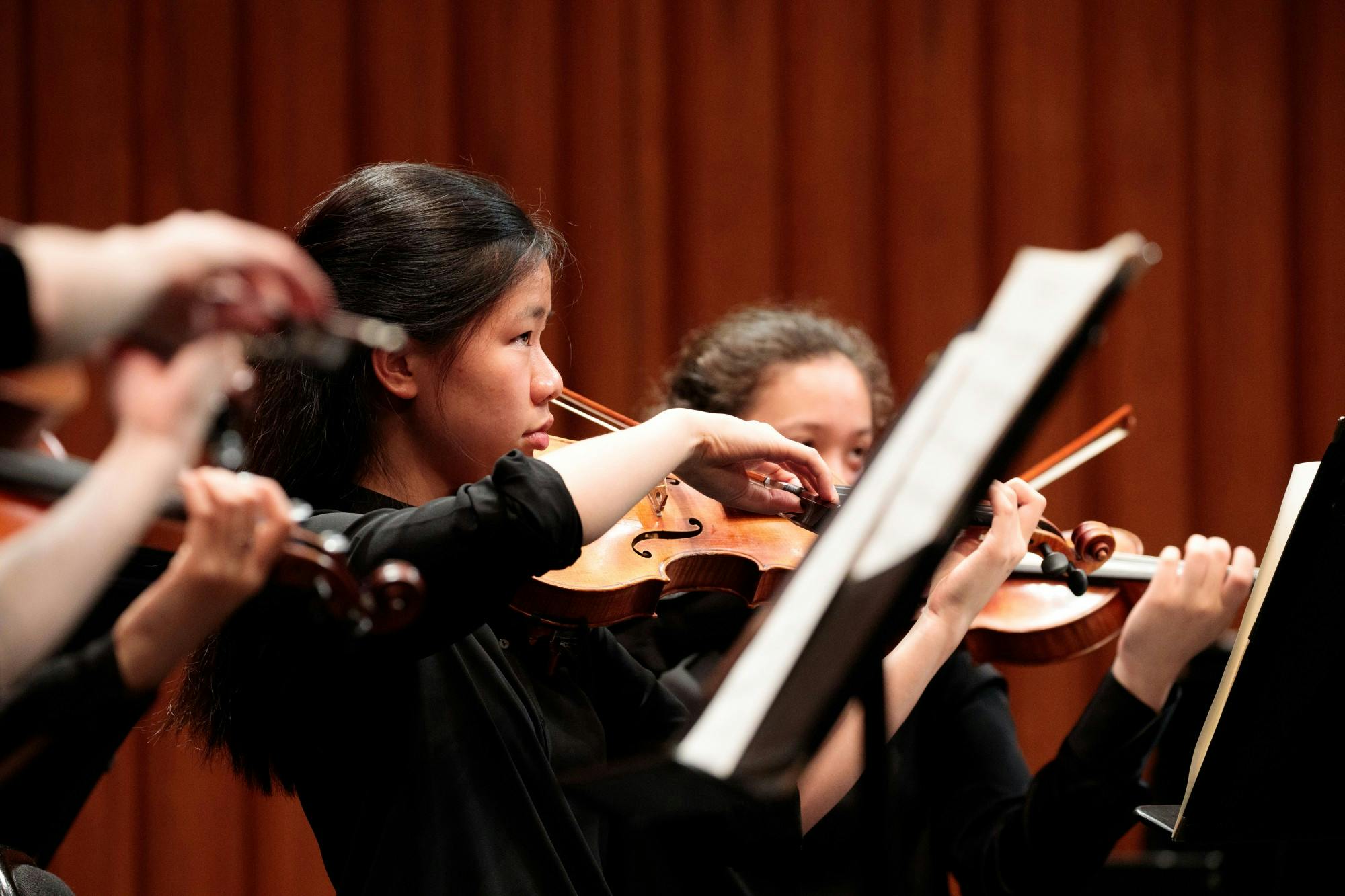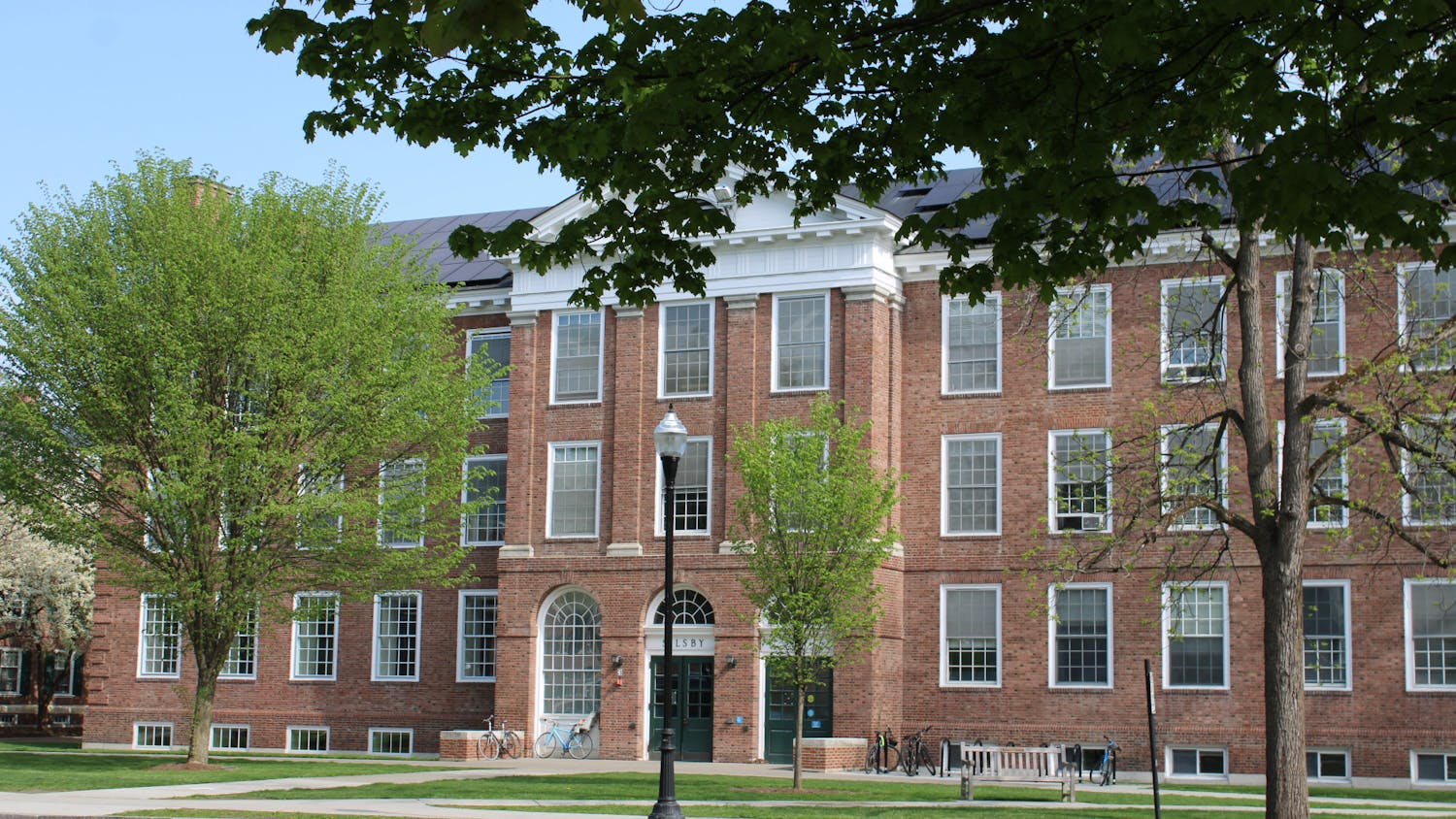This Saturday, Feb. 26, the Dartmouth Symphony Orchestra will perform in-person at the Hopkins Center for the Arts for the second time since the pandemic began. The performance will feature Gustav Mahler’s “Fourth Symphony” and the “Knoxville: Summer of 1915” rhapsody by Samuel Barber.
The students involved in DSO are looking forward to performing the “Fourth Symphony” in front of a live audience of students and the Upper Valley community according to concertmistress Kimberly Tan ‘22, who joined DSO her freshman year in 2018. She is proud of the growth within the orchestra, which played Mahler’s “Fifth Symphony” the first year she became a member.
“I think it's interesting because now that I’ve played Mahler before, I can see some similarities and some differences,” said Tan. “[The Fourth Symphony] has an element that’s often been described as more pastoral and a little lighter. And in the last movement is a poem that's going to be sung by a soprano — it talks about heaven and joy and this idea of lightness.”
Tan said she finds the “Fourth Symphony” and its four movements to be a unique piece for the DSO, and for her as a violinist.
"I think every movement is a little bit different,” said Tan. “The second was meant to be really interesting, because I have to take a separate violin ... and there's a higher tension because you tune it up.”
To round out the performance, the DSO invited soprano Michelle Johnson to sing American composer Samuel Barber’s lyric rhapsody, “Knoxville: Summer of 1915.”
“‘Knoxville,’ the piece of Barber, is a reflection on a person's roots, the origins and the still tight connection with nature,” said Filippo Ciabatti, the director of the DSO.
Ciabatti said the “Fourth Symphony” is a serene and poetic contemplation on nature. He hopes the performance reflects this notion. He elaborated that the choice of the “Fourth Symphony” is inspired by the tribulations the group has gone through during the pandemic.
“I thought that in this moment of transition out of this pandemic, proposing a piece that makes us go back and think about our roots and, at the same time, do that in a reflective, pondering way, would have been an appropriate choice,” Ciabatti said.
Despite COVID-19 difficulties, DSO has achieved numerous feats in the past year, including a recent tour in Italy and Ciabatti receiving the first place award from the 2021 American Prize in Conducting. Ciabatti credits the entire DSO group for the award.
“I think that really, Dartmouth is an extraordinary place,” said Ciabatti. “Because it nurtures talent. Talented people have a rounded perspective on the world and our culture. And I think that's really what, for me, this prize was about. It was really the team that won this prize.”
Miles Blencowe, a professor of physics and regular attendee of DSO performances, said the in-person show means a lot to the community amidst COVID-19.
“There was a small concert spring of last year and it was a very small group of DSO students, because there's a lot of them that weren't there,” Blencowe said. “And it was wonderful. It was outdoors, near the math department, but it just didn't have the same feeling ... I think there's just that extra special thing of just being in person again.”
The DSO, according to both Tan and Ciabatti, holds itself to a high standard for performances, leading to many sold-out shows pre-pandemic.
“I think it's just the fact that students are playing it to a very high standard,” said Blencowe.
While it will be difficult to reach this level of engagement due to continued public health concerns, Blencowe said there are members of the Upper Valley community who are excited to attend. He recalls sitting next to the parents of a student and a community member at the performance in the fall, and the sense of community he felt because of them.
“[To] my right side was a lady who came from Kendall. She was in her mid-90s, and we got talking, and there's this incredible kind of community feeling,” Blencowe said.
The DSO performance will take place this Saturday at 7:30 p.m. at Spaulding Auditorium.




